MercoPress. South Atlantic News Agency
Mercosur
-
Monday, November 13th 2017 - 08:43 UTC
EU and Mercosur “very close” to reaching an accord, says top European official
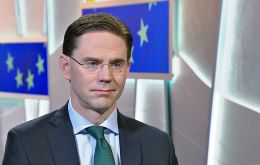
The European Union and Mercosur are close to concluding a free trade accord after decades of fitful talks, an EU official said. “We’re that close to having a new association and trade agreement between EU and Mercosur,” European Commissioner for Jobs, Growth, Investment and Competitiveness Jyrki Katainen said, holding his index finger and thumb just slightly apart.
-
Friday, November 10th 2017 - 01:02 UTC
Argentine inflation forecasted to end at 21% this year and 14.3% in 2018

Argentina's annual core inflation forecast for the end of 2017 rose by 0.7 percentage point (pp) in November to 21%, according to a monthly survey conducted by the Argentine central bank. For 2018, analysts estimated a 14.3% annual inflation, from 14% in the previous survey.
-
Friday, November 10th 2017 - 00:50 UTC
No end to violent deaths in Brazil: seven people killed every sixty minutes in 2016

The number of violent deaths registered during 2016 in Brazil reached 61,600, a 4.7% increase compared to the previous year. This works out to seven people murdered per hour, on average, throughout the country, according to data from the Brazilian Forum on Public Safety released this week.
-
Wednesday, November 8th 2017 - 12:26 UTC
Irish “grave concerns” about the beef industry with the EU/Mercosur trade deal
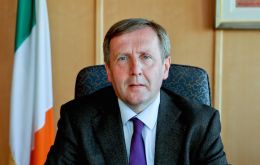
Ireland's Minister for Agriculture Michael Creed has expressed “grave concerns” about the offer of a beef tariff rate quota in last month’s round of European Union/Mercosur discussions, which he said gives rise to potentially very serious consequences for the Irish and EU beef sector in particular.
-
Wednesday, November 8th 2017 - 10:26 UTC
Macri optimistic about reaching a Mercosur/EU trade deal by end of the year
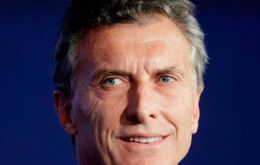
Argentine president Mauricio Macri who has made signing trade deals a priority, said he was optimistic that Mercosur, the trade bloc formed by Argentina, Brazil, Paraguay and Uruguay, would be able to conclude a free trade deal with the European Union by year-end despite differences over beef, ethanol and other agribusiness matters.
-
Friday, October 27th 2017 - 08:38 UTC
EU confirms commitment to reach trade accord with Mercosur by end of the year

European Union leaders have agreed to press ahead with Mercosur talks and European Commission president Jean-Claude Juncker confirmed the bloc will “continue to do everything” to conclude a deal before the end of the year. “It's important,” Mr Juncker said. “We underestimate the importance of Mercosur for the European Union.”
-
Thursday, October 19th 2017 - 07:39 UTC
Mercosur/EU trade deal again faces French foot dragging with Irish support
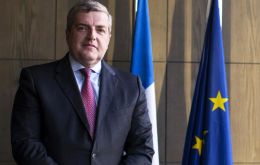
France will propose changing the European Commission’s mandate to negotiate a trade deal with Mercosur bloc to include food safety provisions, its envoy to Brazil said on this week.
-
Tuesday, October 10th 2017 - 02:48 UTC
Aerolineas Argentinas suspends flights to Venezuela because of security concerns
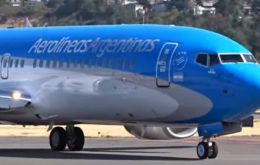
Aerolineas Argentinas has become the latest carrier to suspend flights to Caracas. The company said it had concerns over security in Venezuela because of increasing criminal violence and political uncertainty. It joins dozens of airlines who have taken similar action.
-
Monday, October 2nd 2017 - 11:53 UTC
Uruguay foreign minister will meet UK's Boris Johnson next Monday in London
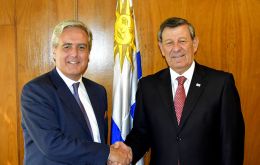
Uruguay's foreign minister Rodolfo Nin Novoa announced he will be meeting foreign secretary Boris Johnson next Monday, in London to address Brexit consequences and Uruguay's interest is reaching a trade agreement with the UK. Although both sides are interested in such an understanding, this will be an initial contact, “the strong intention which will have to be followed up by detailed negotiations”, points out the Uruguayan government ministry.
-
Wednesday, September 20th 2017 - 18:32 UTC
Argentina 2018 budget bill forecasts growth of 3.5% and 15.7% inflation

Argentina’s 2018 budget bill forecasts economic growth of 3.5% next year and average annual inflation of 15.7%, Treasury Minister Nicolas Dujovne told Congress. The bill proposes a 2018 primary fiscal deficit of 3.2% of gross domestic product (GDP) as previously announced.
